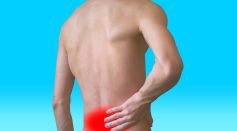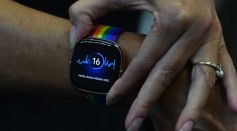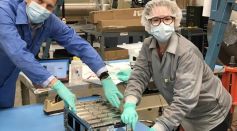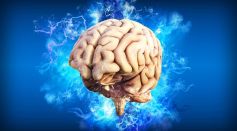Tags: Research

Is An Anti-Aging Drug Underway? Startup Companies Are Trying to Make People Live Longer
Nanotwinned Titanium: New Nanotech Approach for More Sustainable Manufacturing, Simpler Atom Movement

Tuberculosis Spreads Like COVID-19; New Research Shows 90 Percent of TB Bacteria Transmits Through Droplets

MIT Researchers Explore How Marsh Grass Provide Protection From Devastating Storm Surges Along the Shorelines
Solar Cell Enhancement: New Research Reveals Perovskites with High Photovoltaic Efficiency
Sickle Cell Disease: Rapid, Low-Cost Diagnostic Platform GazelleTM Could Improve Care in Remote Regions

Longer Time Spent in Space Potentially Increases Risk of Brain Damage; Researchers Examine Blood Samples of 5 Cosmonauts

Antioxidant-Filled Foods Could Help Prevent Alzheimer's Disease, New Study Suggests
Looking for Something You May Have Lost? Let This Newly Invented Robot Locate It with 96 Percent Success Rate
Early Cancer Detection: Study Shows How An ‘Innovative Microscope Slide’ Can Effectively Determine Diseased Cells
Aging Worms Engage in Self-Destructive Behavior When Their Reproductive Days Are Over
Spider Silk: Research Reveals Cobweb's Role in Treating Wound; Scientists Attempt Detection of Antimicrobial Activity

Psychological Treatment, Not Drugs, Provides Long-Lasting Relief to Chronic Pain, Study Suggests

Greenspaces Near Schools and Homes: Research Shows the Role of Nature in Keeping Children Healthy

Foot-and-Mouth Disease in African Buffalo Shows Persistence of Highly Infectious Pathogens
Why Are Some Twins Identical? Study Sheds Light on Mysterious DNA Epigenetics

Common Cold, Influenza Detectors: How Do These 'Smart' Gadgets Spot a Person with Viral Infection?
How Do Birds React to Climate Change? New Research Reveals Link Between Breeding Sites and Tree Health

Researchers Will Soon Launch a $4 Million Cereal Box-Sized Satellite to Space to Examine Planet Evolution, Exoplanets

Specific Neurons Responsible for Associative Memory Finally Identified, Filling the Missing Piece of How Brains Create Memories
Most Popular

Ocean Acidification, Marine pH Change, and CO2 Absorption: How Coral Reef Damage and Shellfish and Plankton Impacts Threaten Marine Life

Dark Matter Explained: What We Know, What We Don't, and How It Shapes Cosmic Structure

Memory and Learning: How the Brain Stores, Retrieves, and Forgets Information

Water, Carbon, and Nitrogen Cycles: How Biogeochemical Cycles Sustain Earth's Ecosystems





